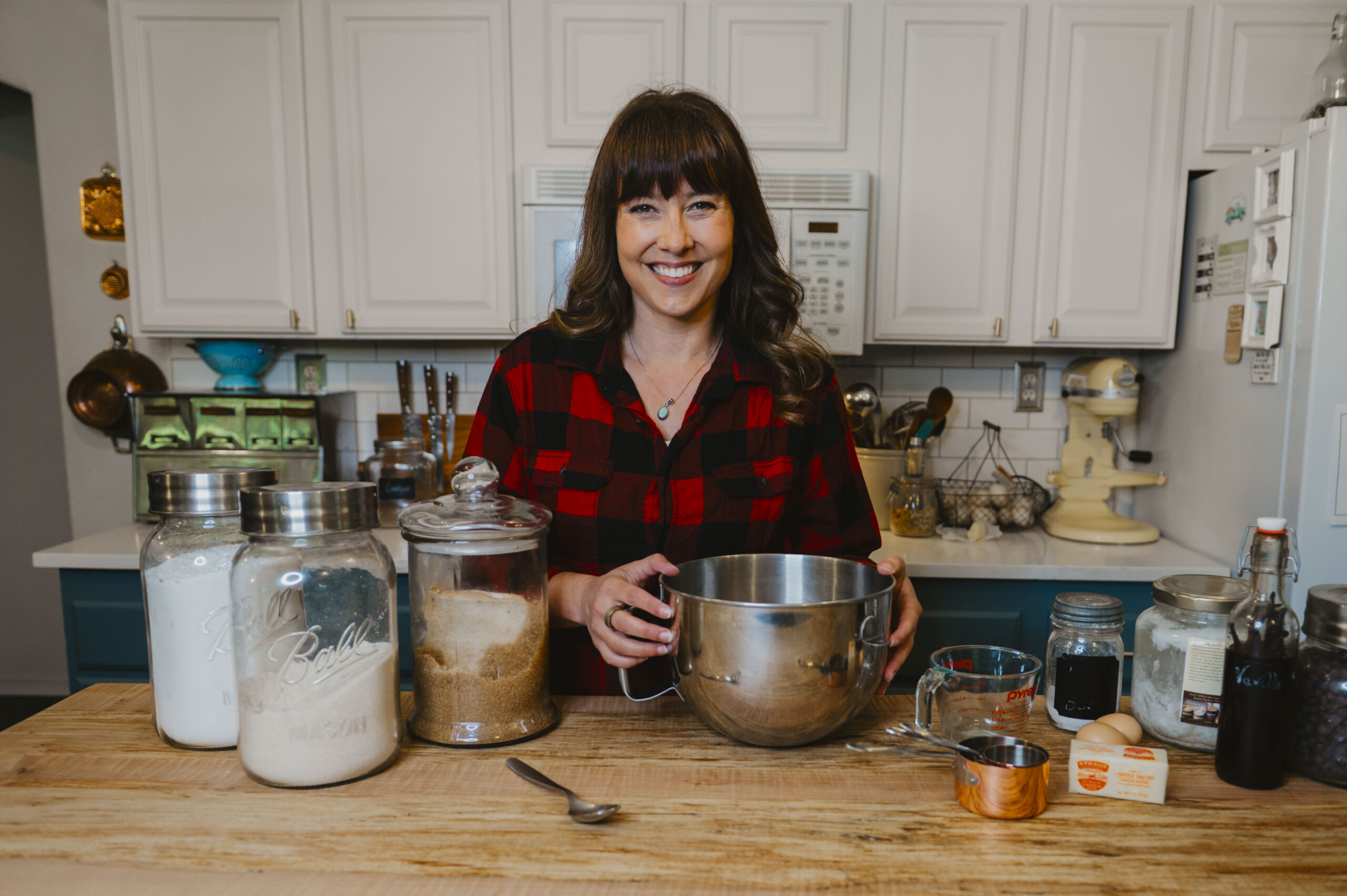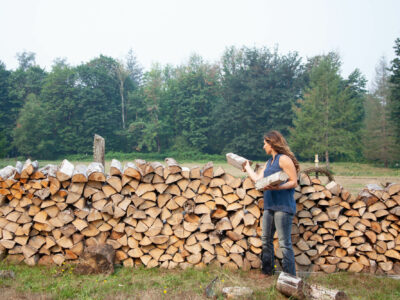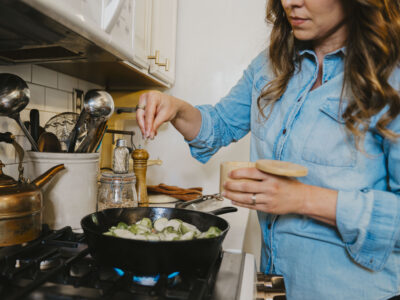Today’s focus is on time management skills for the homestead in order to accomplish all your homesteading tasks along with your other activities. Especially if you happen to have a day job whether that’s working from home, commuting, or a busy housewife with kids. No matter what scenario you find yourself in these tips will help… at least I hope they do.
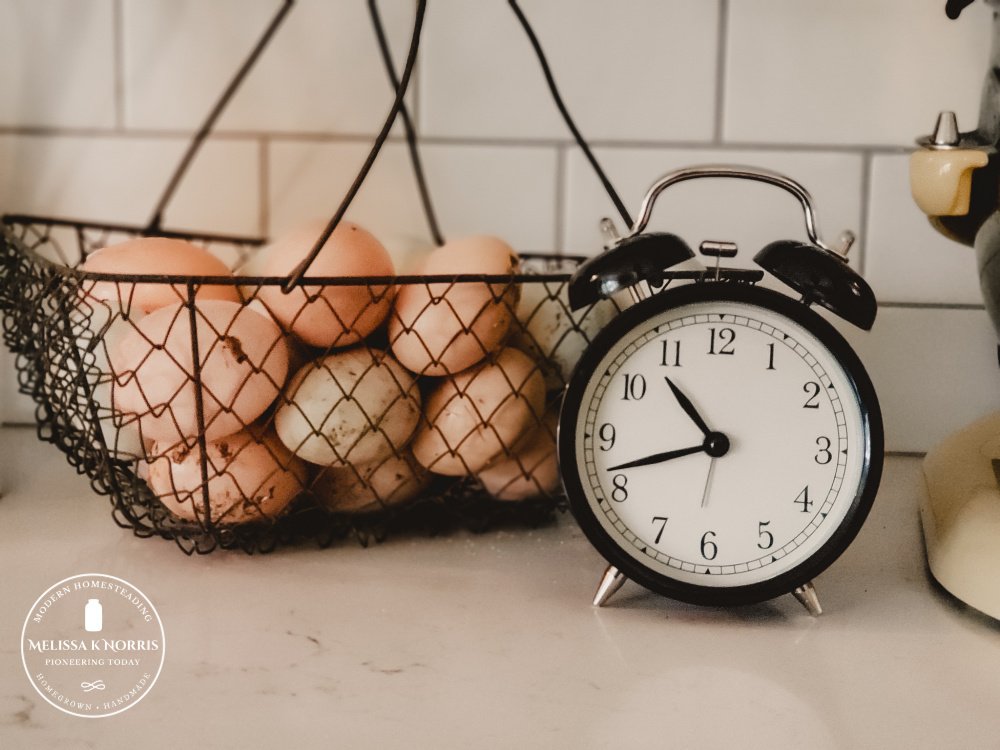
I’m not innately a planner, I’m more of a fly-by-the-seat-of-my-pants kinda gal where I just jump in with both feet with whatever task needs accomplishing.
🍞 Struggling With Sourdough?
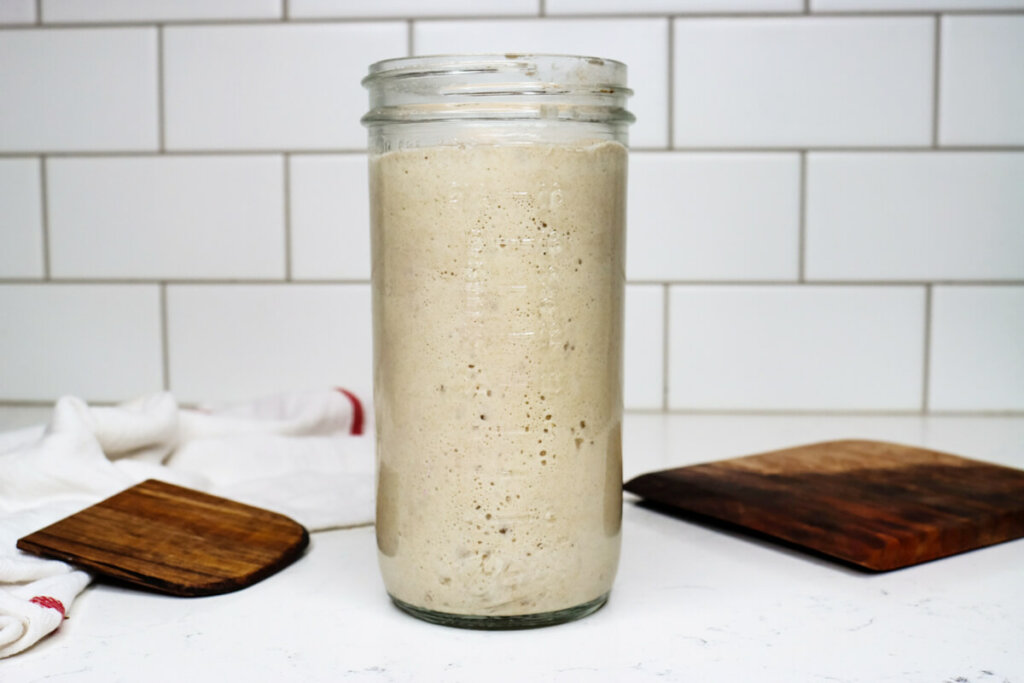
If your starter won’t take off, your loaves are dense and hard, or sourdough just flat-out overwhelms you…
👉 I’ll show you how to fix all of it.
Join my FREE workshop and learn how to make a bubbly, active starter—the right way, from Day One.
But as my business has grown and I now have a blog, YouTube channel, Pioneering Today Academy, podcast, social media channels, as well as writing books and creating new courses, if I don’t set aside and make the time to do the must-do tasks of the week, then I’ll get behind.
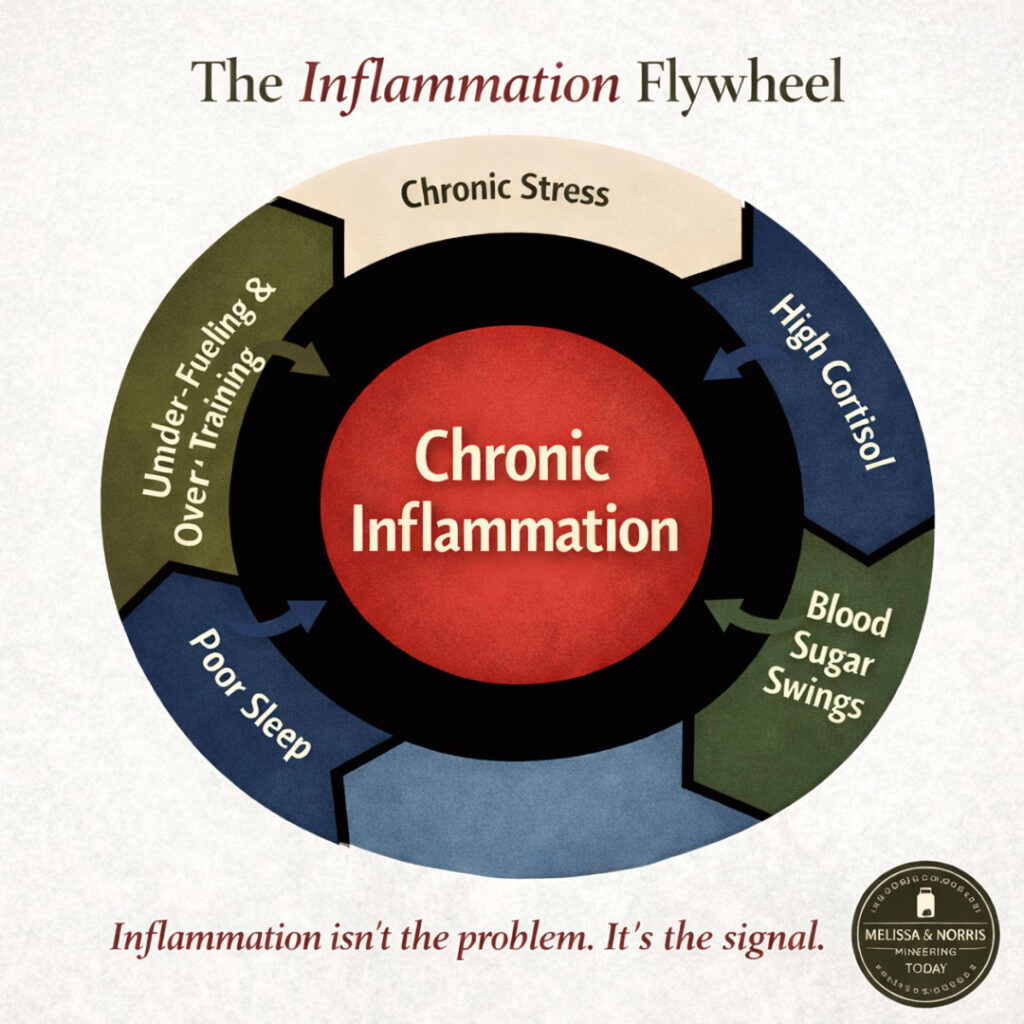
The Hidden Cycle Keeping You Inflamed
If you’ve been feeling puffy, tired, achy, or wired-but-tired, this two-page guide will help you understand what may be happening behind the scenes — even if you’re eating “healthy.”
Download the Inflammation Flywheel Guide and learn:
- Where to start so you don’t feel overwhelmed
- The 5 most common drivers that keep inflammation switched on
- Why blood sugar swings, stress, and poor sleep feed each other
I like to think of it as “meal planning” for your tasks! We all know when you have a meal plan you spend less money on groceries, waste less food, and save time each week even when cooking from scratch by being able to prep food in bulk ahead of time.
Making a plan can sometimes seem daunting and overwhelming (and taking more time which you’re already strapped for), but by planning out your days and week you’ll actually accomplish your tasks faster because there’s a plan.
Knowing what task comes first, second, etc, takes away the brain capacity of having to think about these things in real-time. So, let’s get back to the homesteading basics.
This post has been updated with a new podcast where I’m helping Pioneering Today Academy member Tami organize her own schedule as well as sharing some of the time-saving tips I use on a daily and weekly basis in my own home.
Below, you’ll find the various tips I share, as well as my weekly and daily schedule (at the time of the original podcast recording, which was back in June 2020).
Listen below to the previously recorded Pioneering Today Podcast, Episode #261: 3 Tips for Time Management & My Homestead Schedule.
Table of Contents[Hide][Show]
Must-Have Time Management Skills
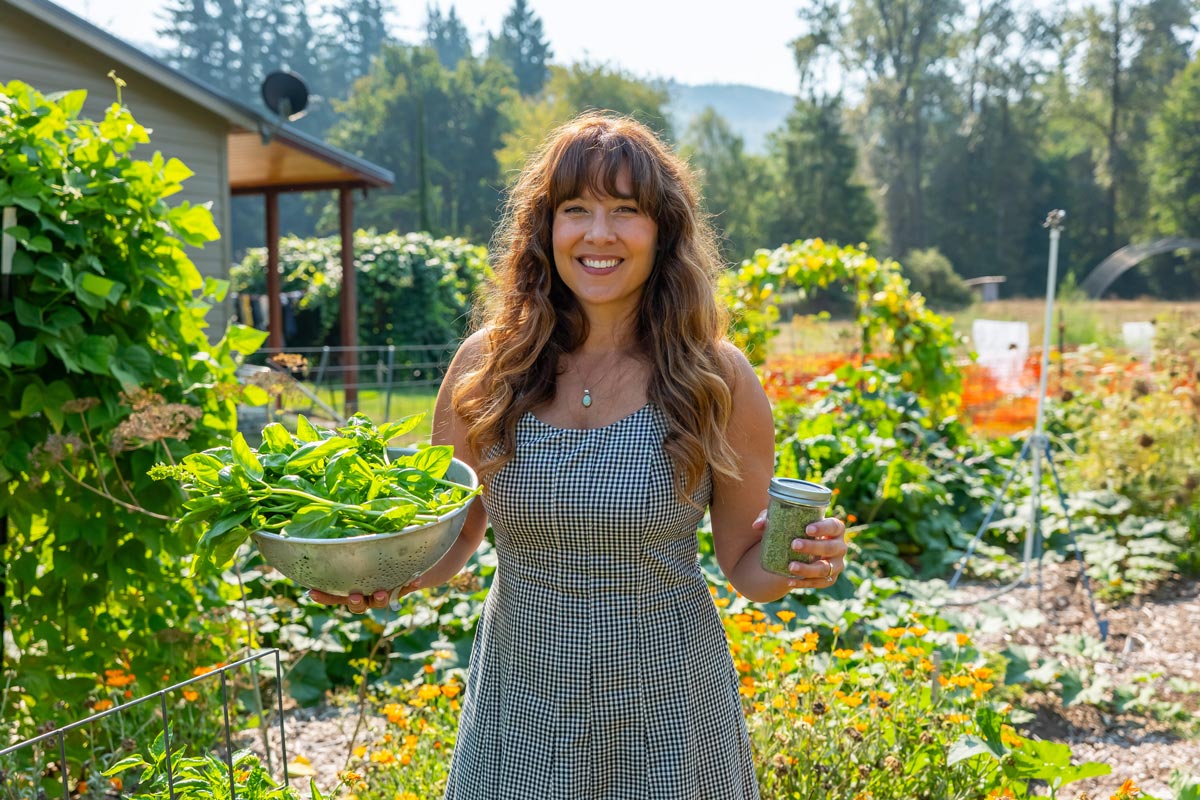
Below you’ll find the seven must-have time management skills when it comes to running a productive household and homestead without burnout or overwhelm.
- Know Your Current Priorities
- Make a Plan
- Use Your Resources Wisely
- Break Up Tasks
- Adjust When Necessary
- Multi-task (or not?)
- Modern-Day Homesteading Skills
Know Your Current Priorities
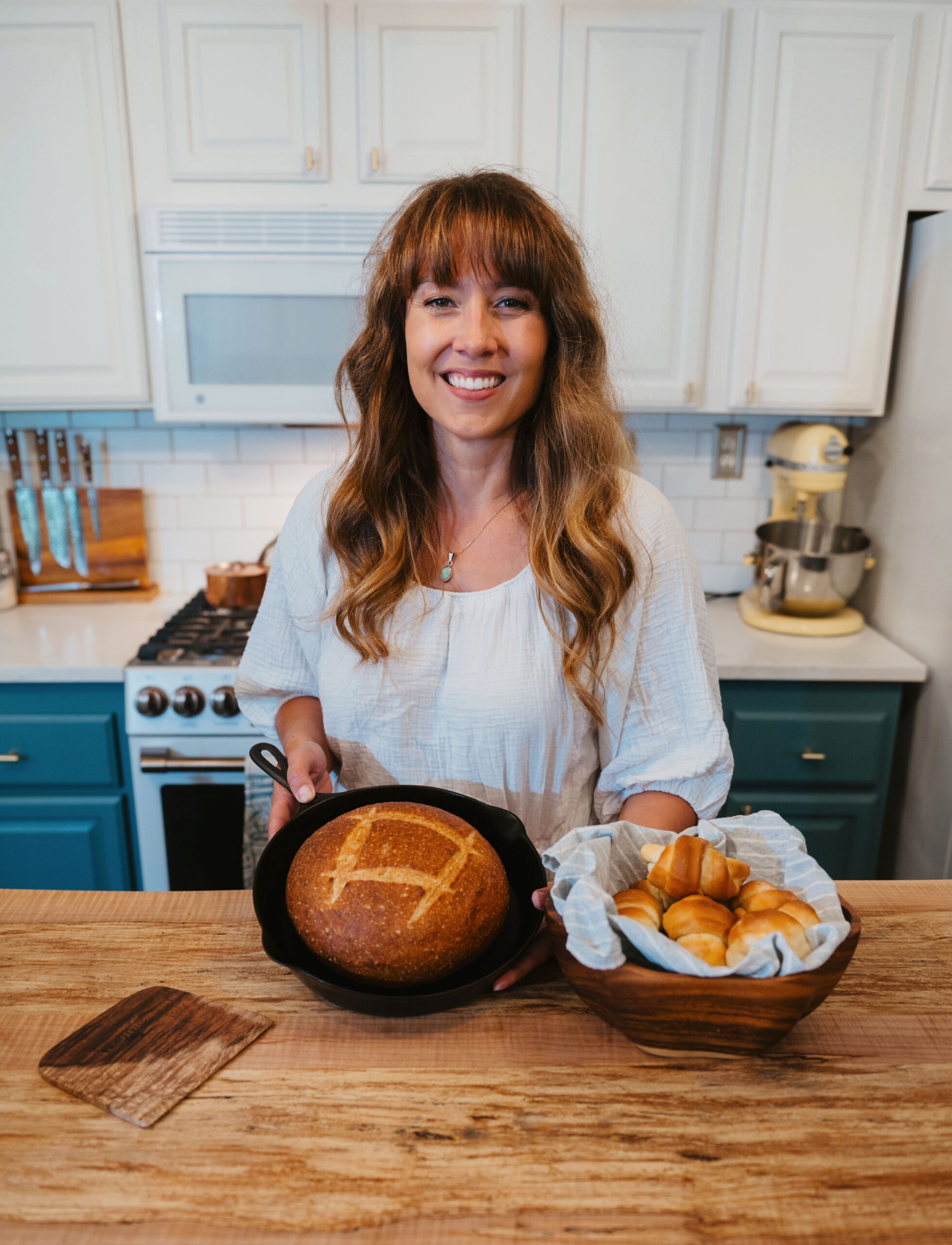
Have you ever met someone who truly “does it all?” I simply don’t believe it’s possible. I’ve never had a time where I felt I could give all my priorities equal attention and everything was at its best. I just don’t think you can.
You’re going to have seasons where some things may have a higher focus and priority. Of course, faith and family should always come first. Please don’t mistake my words there. I don’t mean those things should ever suffer and other things should come before them. What I’m saying is that I don’t think anybody can have an actual perfect balance and that we all have seasons where we’re focusing on different things.
Homesteaders are very hard-working people, but it’s important to be going about our daily “to-do list” in an ongoing manner that’s relaxed and organized, but still allows us to get done all of the wonderful things that we want to do when it comes to our homestead.
And by all means, learn these homestead vacation tips so you can confidently go on a vacation without feeling overwhelmed.
Make a Plan

For me, Monday-Friday has pretty set activities and pockets of time that make it easier for me to batch my time and spread out my weekly tasks in those open areas of time, rather than saving them all for one day.
When you write out a list of everything that needs to happen in a day or a week this can help you come up with a plan that fits your lifestyle and schedule. But you need to be realistic.
When I was younger, I used to make a list of all the things that needed to get done in a day, then mark off as many as I was able to accomplish. I was always left feeling defeated because I was never able to accomplish everything on my list.
One day I was sharing this with my mom who asked to see my list, after she saw all the things I was wanting to accomplish she just chuckled and told me that no one would be able to accomplish everything on my list in a day!
That made me feel better and helped me realize sometimes we need some outside perspective to re-evaluate our expectations. I needed to be more realistic with my expectations.
When I was finally realistic with what I could accomplish in a day, it helped me prioritize my tasks based on the things that were most important. Those tasks that didn’t make the cut, I had to learn to be OK with not completing them.
Seeing the open areas of time throughout the day can help you slot in individual tasks that will only take a certain amount of time. Or, perhaps you realize you don’t have a large enough timeframe to accomplish some of your larger tasks?
The next step is to see what tasks can be broken up into bite-sized chunks…
Break Up Tasks
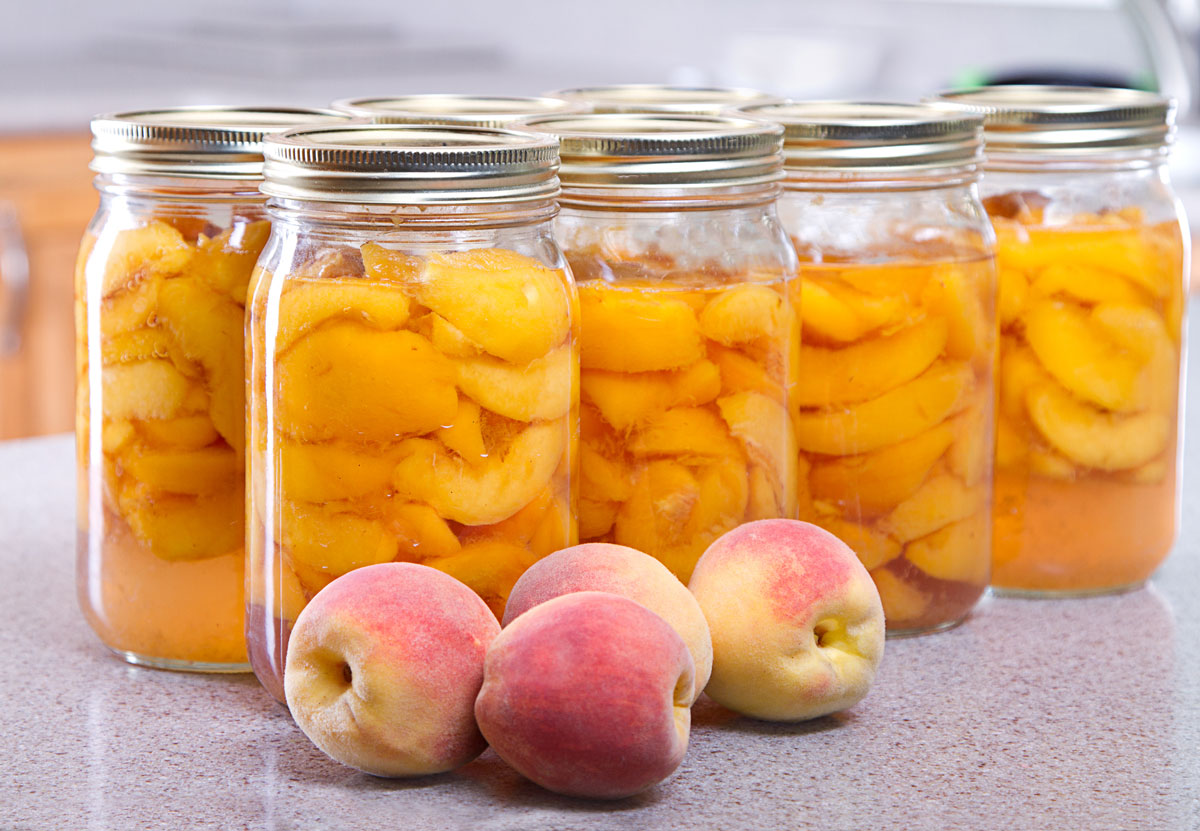
I simply don’t have an entire day during the week to work on a large task, so Monday-Friday is set for smaller tasks or tasks that can be broken up into blocks of time.
For example, making bone broth from scratch and canning it for the pantry is a very time-consuming task that would normally take the better part of an entire day.
However, if one day I start the process of bone broth by roasting bones, then making the broth in the instant pot the next day, putting it into the refrigerator overnight so the fat can solidify and be skimmed off, then finally on the third day I’m canning it up, that one large task has now been broken up into smaller tasks that only take a couple of hours each (most of that is hands-off time).
Another example during preservation season is canning peaches (an all-day, time-consuming task). I can make the light syrup on the first day, blanch, skin, and pit them on the second day (putting them in lemon water overnight so they don’t turn brown), then finally can them up on the third day.
Splitting these tasks up into multiple days makes them seem less daunting and not so overwhelming.
In the podcast interview with Tami, something she realized when it came to making homemade bread is that, because she had a hand-powered grinder, she was always dreading the task of grinding grain.
Because of this she slowly just stopped making bread altogether. Finally, it clicked that if she purchased an electric grain mill, this task was no longer daunting and she began making her own homemade bread again.
Use Your Resources Wisely
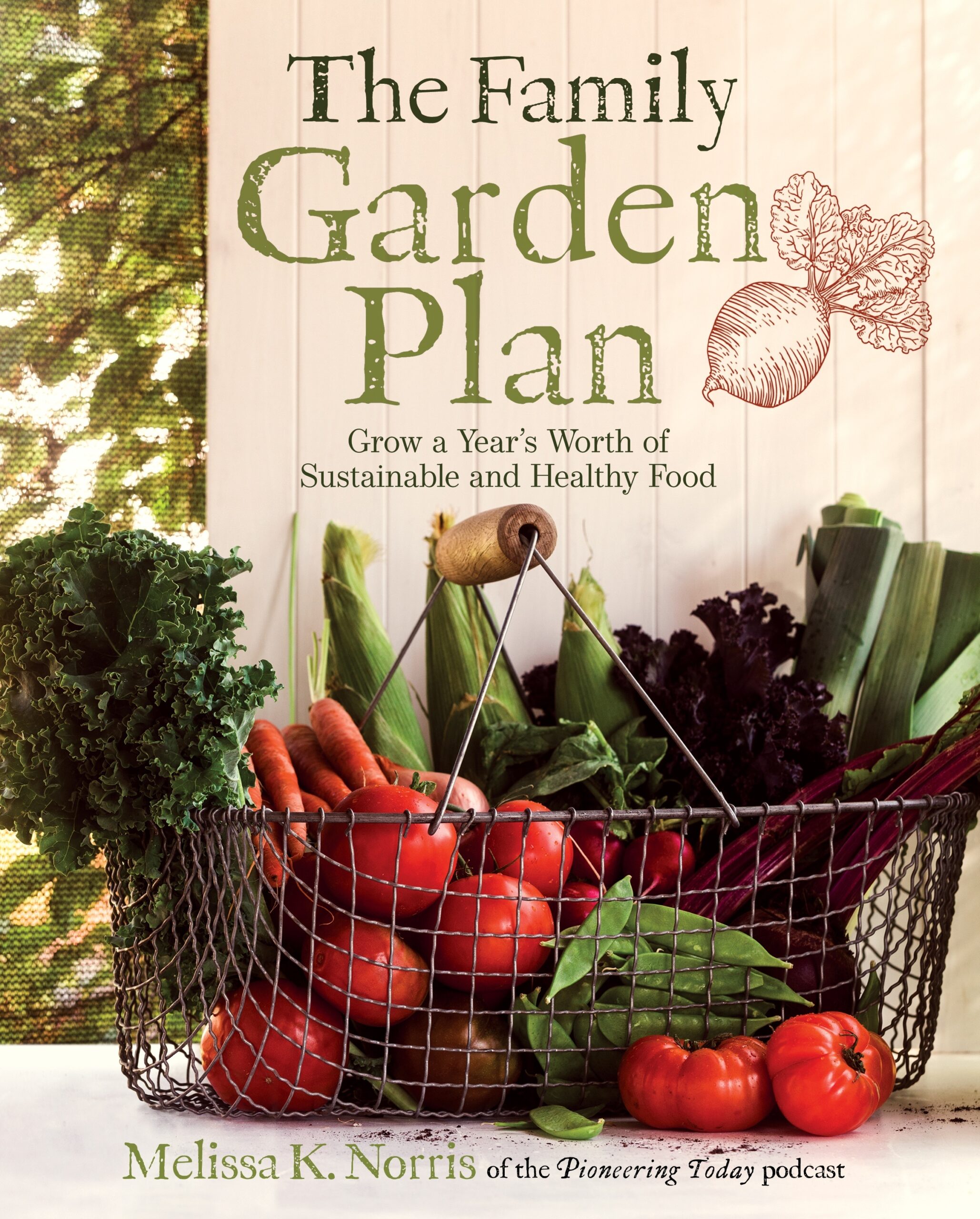
In today’s modern world we have information at our fingertips. From our smartphones to books, information is readily available on countless topics.
If you’re not familiar with my book, The Family Garden Plan, let me tell you a little about it. It walks you through step by step how to determine and grow a year’s worth of sustainable and healthy food.
It’s not just about planning and growing your garden though. There are numerous charts that even I use yearly, one of my favorites being the Harvest and Preserving Chart.
This one chart covers how much produce you need to grow to preserve enough of the harvest to feed your family for a year.
For example, at the time I recorded this original podcast I had 25 one-year-old strawberry plants. I knew this wouldn’t provide enough for my family to preserve enough strawberry jam for the year, so I knew I would need to purchase a couple of flats of strawberries.
In this instance, six to eight cups of fresh strawberries are going to give either one quart canned or two pints of frozen jam. By knowing how much you need, you’ll save yourself time in not having wasted trips to purchase or obtain the necessary products or resources.
Adjust When Necessary
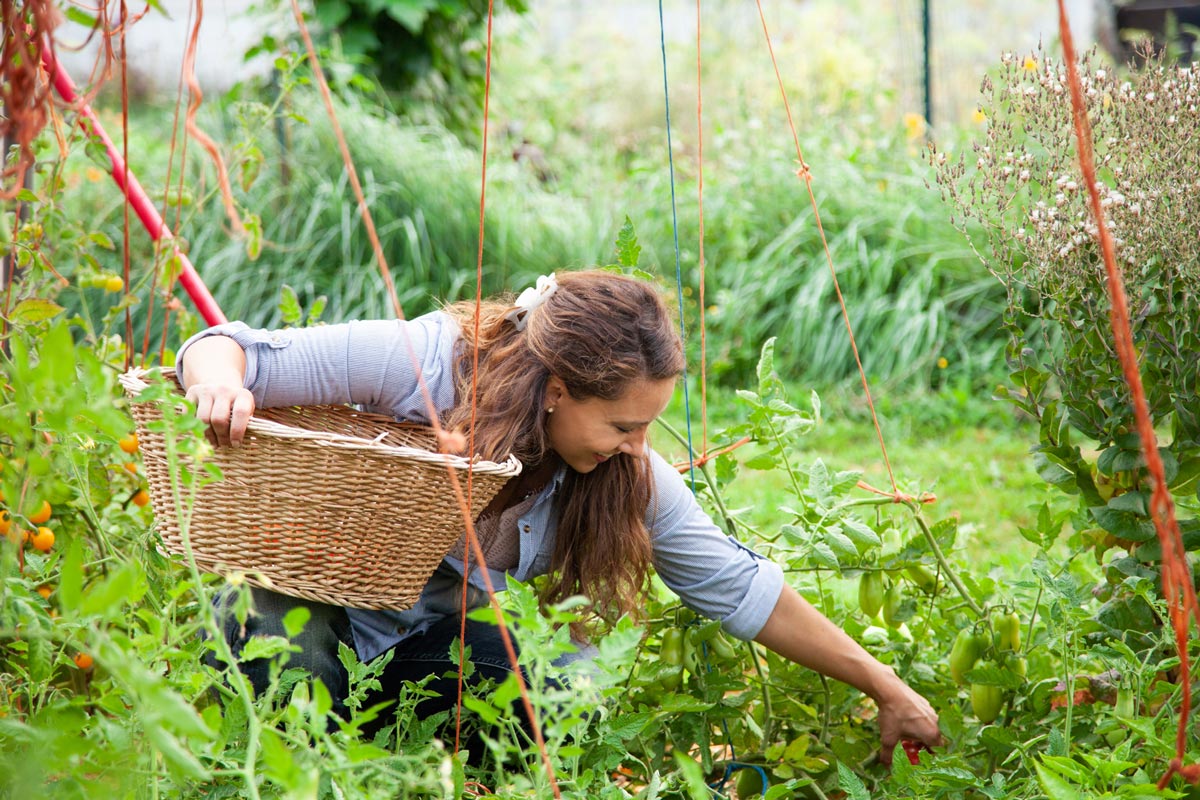
It’s extremely important to be flexible when it comes to your schedule. Life happens all around us, a kid gets sick, an animal needs special attention, the power goes out, or a crop ripens earlier than expected and needs to get preserved before it goes bad.
If our schedules aren’t flexible then we’re bound to fail.
My daily and weekly schedule changes based upon the seasons. For the original podcast in this post (see my daily/weekly schedule below), it was the beginning/middle of June and we were just moving into the busy season with the garden.
For the second podcast, it’s the beginning of March and I’m focused more on indoor tasks, starting seeds indoors, and we’re even adding an addition to our house (which throws off many other “normal” routines).
You have to, especially with homesteading, adapt and adjust and change schedules based on the seasons (or circumstances). Sometimes it’s the literal seasons, like the harvest season. Other times its different seasons in life.
I don’t have really young children, like infants or toddlers, at home. My kids are in their teenage years so that definitely makes things look a little different than when they were little. I just want to preface with that.
There really is no such thing as finding the perfect balance between all the things in your life. You simply can’t “do it all”. But you can find a good balance of the most important tasks.
I divide mine out into the following areas (in no particular order):
- My spiritual life – I’m a Christian, so I like to prioritize time reading the Bible and in prayer with the Lord.
- Relationships – with my husband, my children, friendships, family members, etc.
- Work/career – or however you’re bringing in or saving money.
- Health and exercise – one of the easiest ways for me to get exercise is to go for a daily walk or run.
- Rest – we must prioritize adequate rest or all the other areas of our life will flounder.
Multi-Task (or not?)
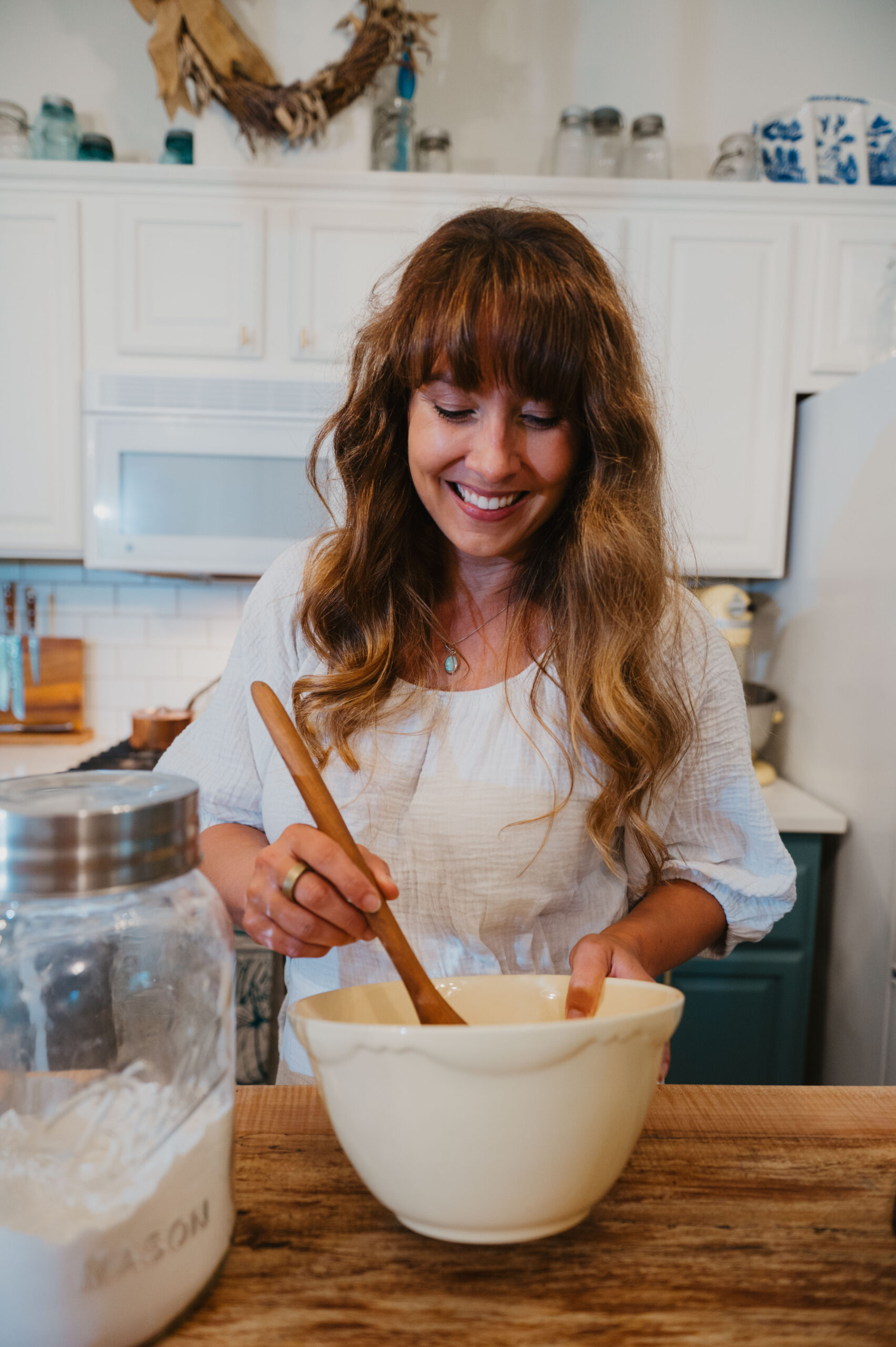
There is a fine balance between modern conveniences and the homesteading lifestyle. The truth is, we live in a busier world than our grandparents did. Though they didn’t actually have more hours in a day, they had fewer distractions vying for their time.
Some might say their priorities were better, too!
Multitasking can get a bad wrap for a lot of reasons. For instance, if you’re trying to get five tasks done at once, every time you switch to a different task your brain actually loses focus and you lose productivity.
However, that being said, with some of the tasks that don’t take a lot of brain-power or thought, they can be batched together and completed in less time.
I also really enjoy listening to podcasts, audiobooks, and music, so I’ll use these things as a reward for myself while doing these tasks.
Modern-Day Homesteading Skills
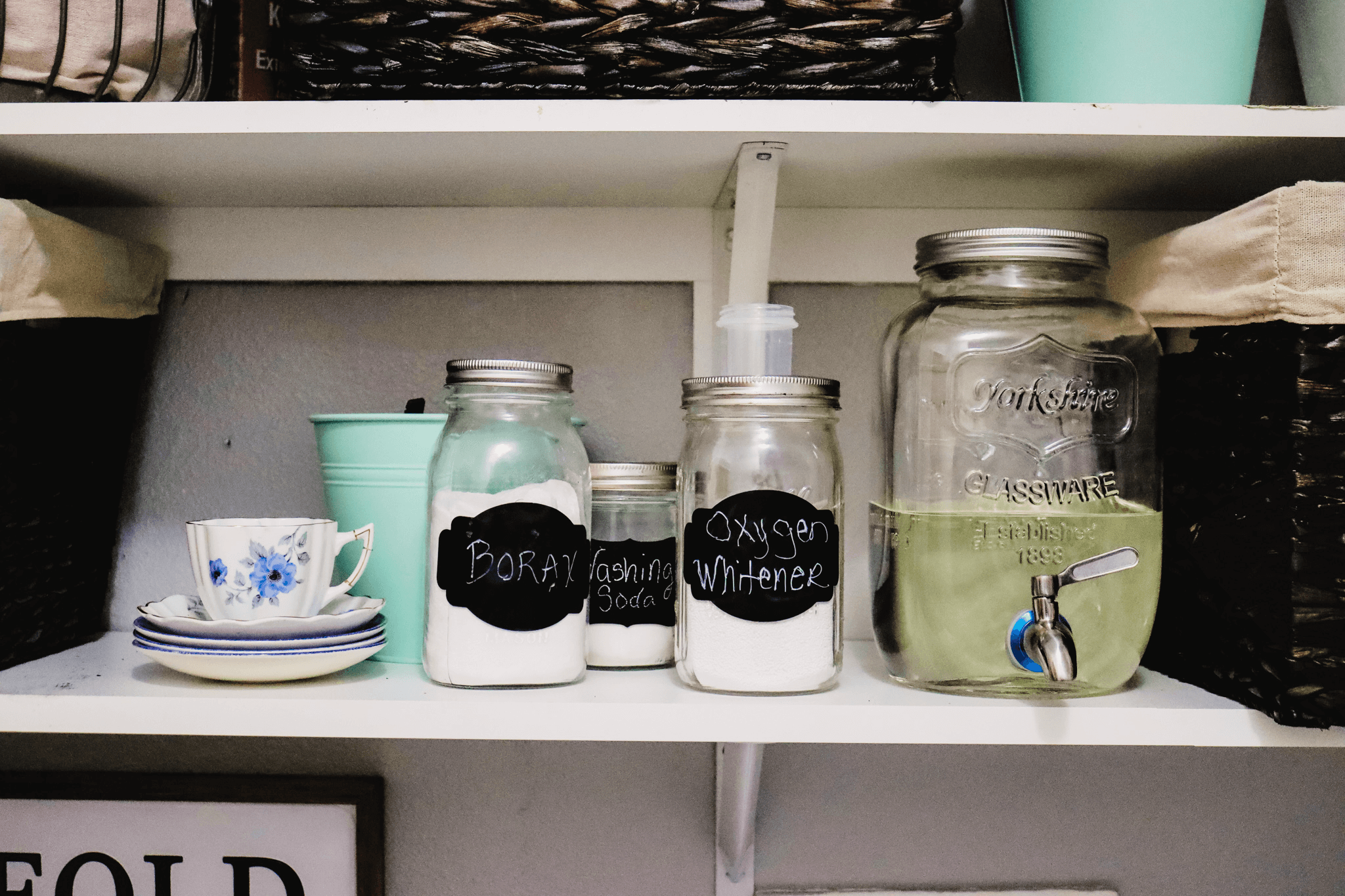
There are many tasks that used to take hours to complete. Like doing laundry! But because they were such time-consuming tasks, they weren’t done as often.
Figure out what tasks you need to do throughout the week to stay ahead, and not get behind.
Let’s take laundry as an example. This used to take a lot of hands-on time to heat up water for the washtub, scrub the clothes, then hang them dry.
For us, on our modern homestead, we have a washing machine (praise the Lord!), but we also have many more clothes than our grandparents had.
Because there are four of us and we live on a farm, I need to do about one load of laundry a day to keep up with it. If I put it off to the weekend it gets to be too much to keep up with while also trying to accomplish other larger tasks.
So one load a day fits into my schedule and my daily routine easily and keeps up with a chore that must get done.
Same with weeding, if I just devote 30 minutes a day to weeding the garden, then I find it’s easier to keep up with it all rather than saving it for the weekend where it would take up my entire day to try and get it all done.
The caveat to this method of checking chores off the list is that I have to be OK during the week that when my 30 minutes is up, I stop. For people who can’t leave a task incomplete, this may be difficult, so it may take some practice.
On the weekend, specifically Sunday afternoon, I like to think about what food we’ll need during the week and then prep or batch cook as much as I’m able.
In the membership, for those of you listening who are members, I have a lesson inside our Homesteading Skills course on how I do a week’s worth of baking in one hour a week of hands-on time. That’s a great lesson that’s filled with helpful tips.
I also happen to have a similar lesson available to everyone on making easy and healthy baked goods in one hour per week here.
My Current Schedule
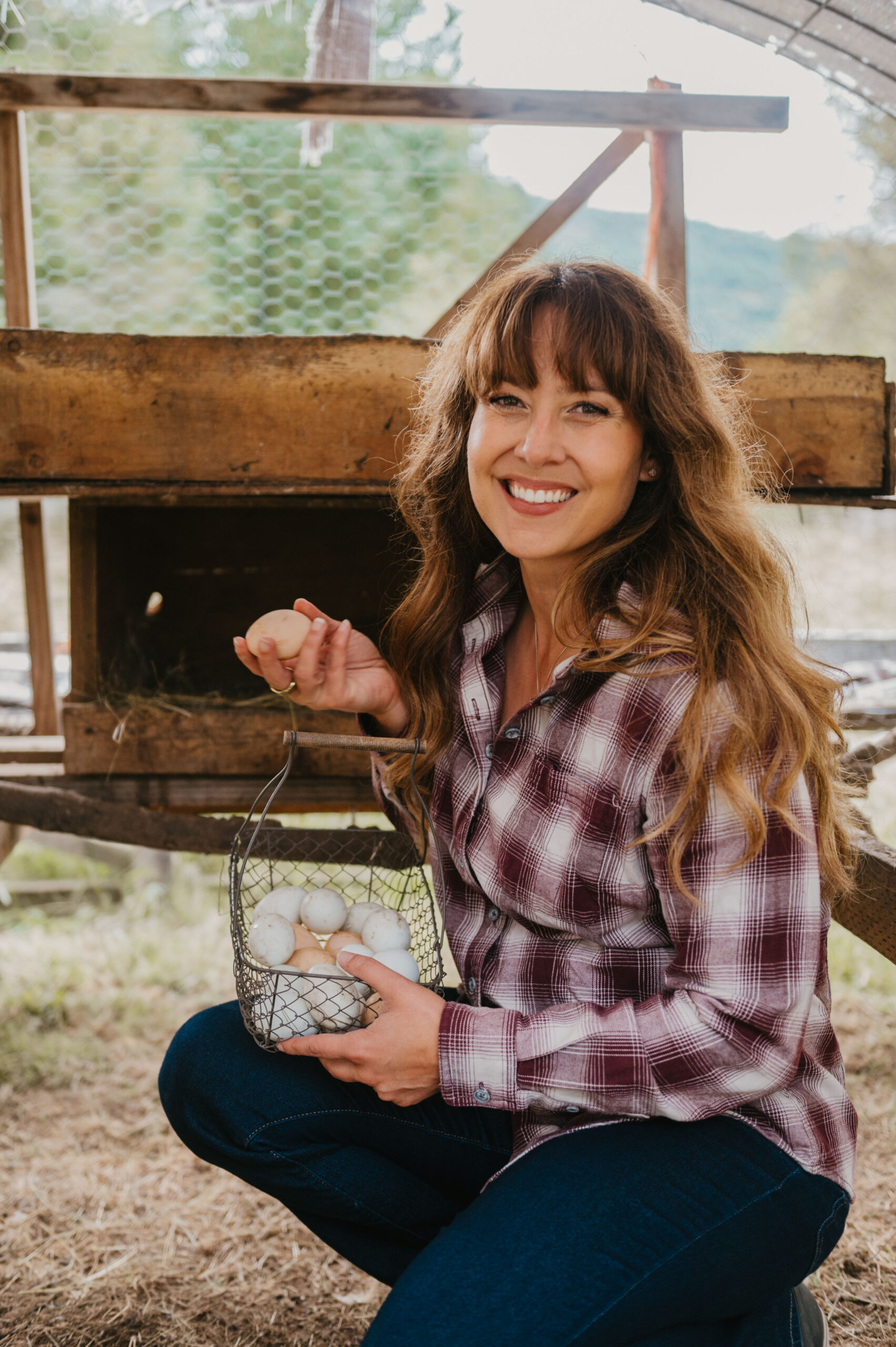
Let me preface this by giving some history. Up until 2018, I commuted 18 miles one way to work in a neighboring town at a pharmacy. I now work from home putting in at least 50 hours a week.
As preservation time gets rolling this time is usually reduced to about 40 hours a week, but I definitely work a full-time job. I just don’t have the commute anymore.
I absolutely love and adore what I get to do now with writing books, podcasting, blogging, making YouTube videos, running the Pioneering Today Academy, creating digital courses, and teaching people all the different aspects of modern homesteading and becoming more self-sufficient.
My husband still has his day job where he works at a mill sawing guitar tops. His commute is very similar to what mine used to be where it’s about 15 miles away from our home.
With all that said, here is my current weekly and daily schedule.
Monday through Friday – My kids go to school so the house is pretty quiet during the day.
7:00 AM – I’m usually get up about this time. It’s a lot later than I used to get up. One of the things that I have discovered is what my natural circadian rhythm is. That is when I naturally want to fall asleep when I have my energy peaks throughout the day when I really function at my best and most productive. I’ve always been a bit of a night owl quite honestly.
Of course, when you have young infants or you’re working a day job where you have to leave early, I didn’t get to be a night owl. I would have to force myself to go to bed early thereby making myself get out of bed a lot earlier. Using technology through my sleep number bed, apps on my computer and phone, I’ve been able to track when I’m at my most productive times and also my sleep habits. Based on the data from those two things, I do best if I go to bed at 11 o’clock at night and get up at seven in the morning. This allows my body to get the most restful deep sleep.
Animals & Garden
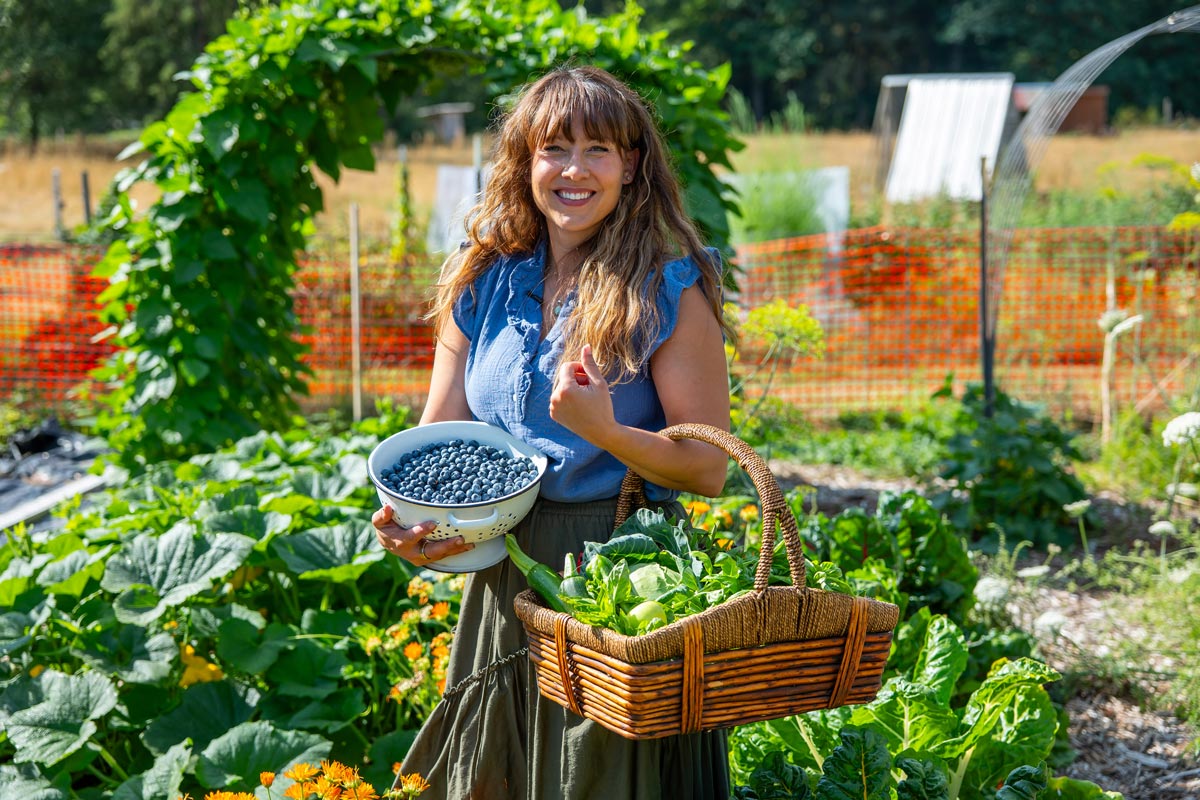
I wanted to explain that because a lot of people assume that homesteading with animals that you have to get up with the rising of the sun, which isn’t true at all. When I get up, the first thing is I go out and feed and water the chickens: I take the meat birds their food, the laying hens and pigs get fed and everybody gets their water checked. Then I do a walkthrough of the garden if it’s not pouring down rain. If there’s a break in the weather I’ll do the walkthrough of the garden later in the day. When on the walkthrough I do slug patrol where I handpick slugs and snails off any of my plants and put them in a small container of soapy water so that they die and stop eating my plants!
When the garden is going it’s best to be out there at least once a day, even if it’s just a quick walkthrough. It’s so much easier to identify when things are starting to go south, whether that’s diseases starting to take hold, pests like slugs and snails, or anything like that. If I can catch something right away then I can jump on it. I have a lot better success at getting rid of the insects, pests, disease…whatever…before it fully takes hold. I really say that the best thing for your garden and success is you and being present in it.
Three or four mornings I’ll also do a little bit of weeding if it needs to be done during that early morning perusal. I’ll address the bugs, do a little bit of pruning on the tomatoes, and weed one row. I found by just doing a little bit like that in the morning first thing I don’t have to devote a whole few hours spree on the weekend. It’s my way of keeping on top of things.
Bible & Kids
After that, I come into the house and have my first cup of coffee for the day. I sit down to drink my coffee while doing my Bible reading and devotional time for myself. I’ve found if I do not do my Bible reading and prayer time in the morning, I don’t do it later on. I may have the best intentions to do it in the afternoon or in the evening, but it just doesn’t happen. So for me, I need to do that first thing in the morning after taking care of the animals.
After that, I get the kids up then go in and get dressed for the day. I don’t usually eat breakfast. I have never really liked to have a big breakfast which I think personally for me goes hand in hand with not being a morning person. The kids will have breakfast but I don’t. My coffee is my breakfast. Then it’s on to making sure the kids are getting ready to do whatever school assignments they have for the day and making sure throughout the day that they’re working on whatever they need to be.
Household Time
I’ll then put on a load of laundry. I do about one load a day. Since we don’t have a dishwasher I’ll go through the kitchen to tidy up. Dishes actually get done after supper and are on rotation between all four of us in our family. Everybody takes a turn at dish night. But what I do in the morning is put away anything that is dry and didn’t get put away the night before. I’ll also do any dinner prep, such as get out the meat for the evening meal or get the sourdough bread going so that it can rise all day. These tasks go pretty quickly, usually about 30 minutes max.
Begin the Workday
9:00/9:30 AM – Then I begin my workday. I’ll spend about two to three hours on a combination of things:
- Meetings
- Customer Service
- Recording Podcasts
- Scheduling & Writing Emails
- Working on Blog Posts
- Other computer-related work
Short Break & More Household Time
12/12:30 PM – I’ll eat a snack of sorts and have a second cup of coffee. I don’t really eat a huge lunch, but I’ll have something during my break time. Then the laundry that got washed in the morning will be dried, whether that’s on the line or the dryer depends on the time of year and weather. Anything that needs to be addressed for dinner prep is done at this time too.
Resume Workday
Afternoon – This is when I do some type of filming for YouTube videos, Facebook and Instagram stories or videos, and all of my different courses inside the Pioneering Today Academy. I also have independent courses that can be purchased without being an Academy member. Some are only available with the membership right now. Those that can be purchased are:
- Home Fruit Preservation Canning e-Course
- Home Canning with Confidence
- Homemade Bread & Baking Class
- Natural Homemade Bath & Beauty Class
- Organic Gardening Workshop
So between all of them, I am filming almost daily, at least three days out of the week. What I’m filming is what we’re doing on our homestead, which already has to be done, and also what I’m teaching about. So I get to do the work on the homestead but I’m also documenting it. In doing so I have to make sure all the batteries are charged, get the film equipment set up, and then actually do it. That usually takes an hour or two in the afternoon.
Break Time, Check on Chickens, & Revisit Anything Left Undone
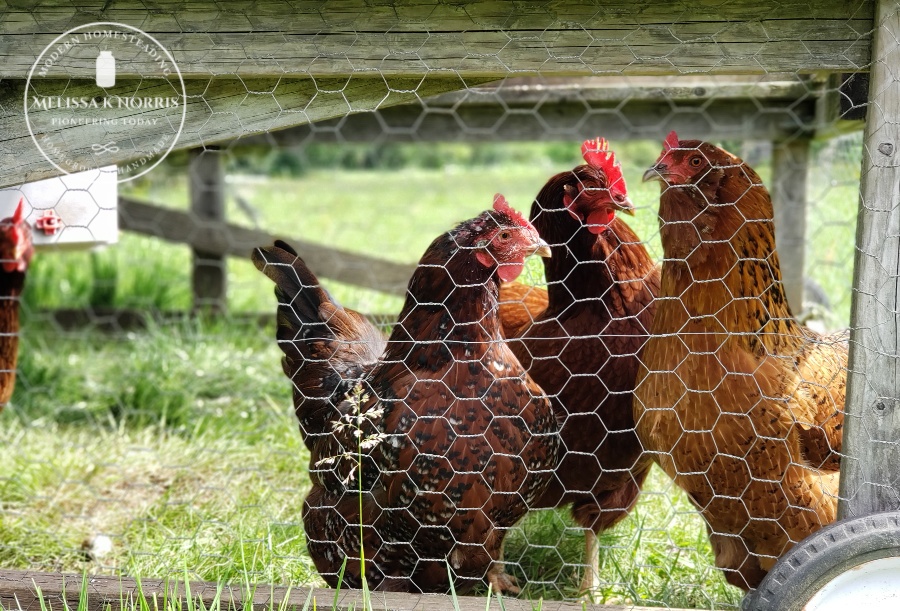
3:30/4:00 PM – I’ll check in on the kids and help them if they need it. My daughter sometimes helps me film so that’s part of her homeschooling learning to be a videographer. Also around this time, the kid’s chores are complete and schoolwork gets wrapped up for the day.
Because the meat chickens are at a point where they’re starting to really go through their feed and water, I’ll go out around this time to make sure their water is full. If there’s anything that didn’t get done that needed to be done in the garden, I’ll go back at this time and do that. Sometimes it’s pruning, sometimes it’s actually beginning to harvest things. For example, at the time of recording the podcast I needed to go out and harvest Holy Basil leaves to get those drying so that I have them for tea and tincture making later on this week or next.
Then, depending on the day, I do any dinner prep that can’t be done earlier in the day.
Workout
4:30/5:00 PM – As I mentioned earlier, I am not an early morning person so I don’t work out in the morning. I’ve tried and I don’t enjoy it. I don’t work out in the morning but I do work out between five and six days a week. I do it in the late afternoon.
Even though we live on a homestead where we’re lifting 25 to 50-pound bags of feed at different times throughout the day, doing lots of bending and stooping, kneeling and squatting when in the garden, and moving stuff around it’s really not enough for me to stay in really truly tip-top physical shape. So I work out, which I now do at home. I did teach a fitness class once a week at our local fitness center before COVID as well as attended some classes there, but usually, I do the majority of my workouts at home. It wouldn’t be practical to go to the closest gym with weights and machines because it’s almost an hour away from us.
Now there have been times that I didn’t work out but I feel I need to do it. Here are the reasons I do it:
- I sleep a lot better. It’s a deeper sleep and my breath and resting heart rate are a lot lower.
- I don’t have as much stress
- Reduced anxiety
- I tend to have a better mood meaning I’m less snippy and greater patience
- I plan on living this homestead lifestyle until the good Lord takes me home. I’m 39 years old (41 now!) and obviously as I age if I don’t keep my physical and strength level where it’s at right now I’m going to degrade and become weaker. My father is in his 80’s and he still runs his sawmill, cuts his firewood, and has a garden. That’s what I want to be doing when I am 80 years old. I still want to physically be able to do all of these things on our homestead. The only way I’m going to be able to do that is if I keep myself fit.
- Minimize aging pain. I’ve noticed that when I don’t work out, for say two weeks, I start to lose strength and decline. I’ll hurt. Like my upper and mid back will ache when I’m standing. Or I’ll notice weird different muscle pains here and there or joint pain. When I work out there is soreness but it’s not to the point that it’s debilitating. It’s a good soreness.
I will do alternating days. One day I will lift using the dumbells, kettlebell, or my own body weight. I don’t have a big bench system. I will do upper body one day with weights and a little bit of cardio, but mainly just weightlifting. The next day I’ll do the alternate of that doing just cardio where I get my heart rate up. I usually only work out for 30 to 40 minutes so I’m not doing extremely long workouts. I prefer to hit it hard and get it over with. For me personally, because I have low thyroid and some adrenal gland issues, I can’t do all cardio for five to six days a week. It tends to be too much for me.
A typical routine for me:
- Monday: Upper body with weights
- Tuesday: Cardio
- Wednesday: Lower body with weights
- Thursday: PIYO – I’m certified to teach this and is what I taught in the fitness classes. It’s low impact using principles from Pilates. No weights involved. It helps improve your flexibility.
- Friday: All over body workout with weights, a little cardio.
- Saturday: Stretching with yoga moves
- Sunday: Rest day
Depending on the weather, the entire family will go for a walk while dinner is cooking. Dinner could be in the InstantPot, on the stove, or in the oven, whatever. As long as it’s not something I have to stand over and be on top of, we’ll go play around with the volleyball out in the yard or go for a walk.
After Dinner
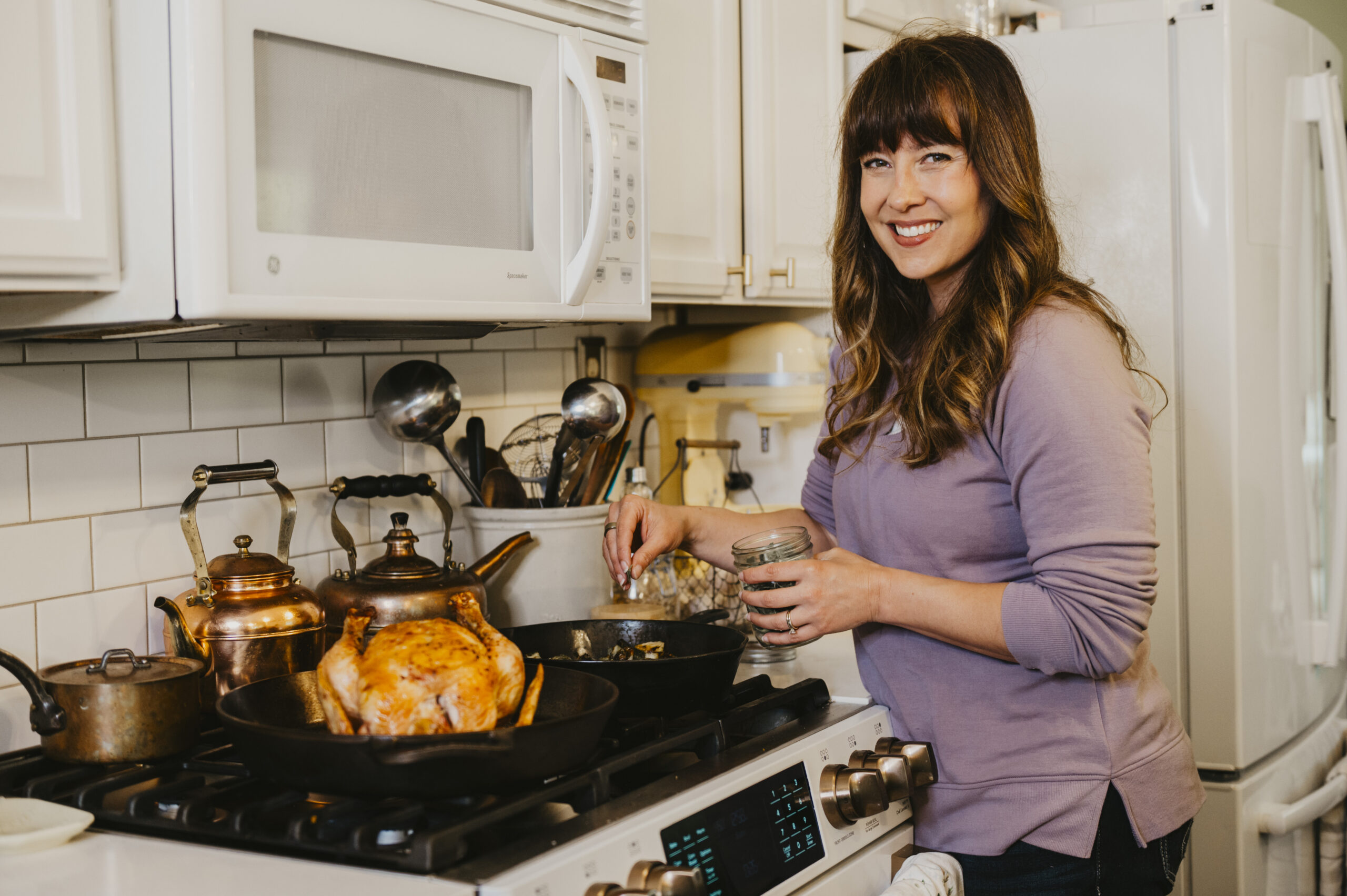
After dinner is clean-up time. Then we go out and take the food away from the meat birds. I explain why we do this in 10 Tips on Raising Meat Birds. We also make sure to pen everyone up safe and sound. Then we’ll watch a family show together or do a family game night. On Fridays, we do a family movie night.
Sometimes I go back and do another hour or so on the computer, although I’m trying to get better about this. Or, after everybody goes to bed, I’ll do another hour or so on the computer if I didn’t get stuff done.
I’m trying not to do that though because I have found that once I get back on the computer and working, thinking I’ll only do half an hour or so, then it ends up being two to three hours.
I tend to have a really strong work ethic almost to the point of my own detriment at times. Like I said, I was putting in 60 plus hours a week over the past couple of months so I’ve really had to pull back and be cognizant of how much time I’m spending. That’s why in the month of June I’m not doing any video training sessions. I was doing a lot of master classes or webinars during the past couple of months. But, outside of the academy, I’m not doing any for at least the month of June. I have to assess how things are for the months of July and August.
Weekends – I try to not do computer work very much. I usually still put in a couple of hours at least on Saturday though. I try to not do any on Sunday, but sometimes I do a little bit if I’m being honest.
Projects & Seasonal Activities
Weekends is when we really focus on the homestead stuff such as:
- Putting in new fences and livestock pens
- Moving livestock
- Garden time, such as putting in a new garden bed, etc.
- Preserving time, which we are starting to get into that season now. I know that I’ll be transitioning to do more of this not just on the weekends but during the week here in about mid-July, August, and into September when everything is coming on.
Family Time
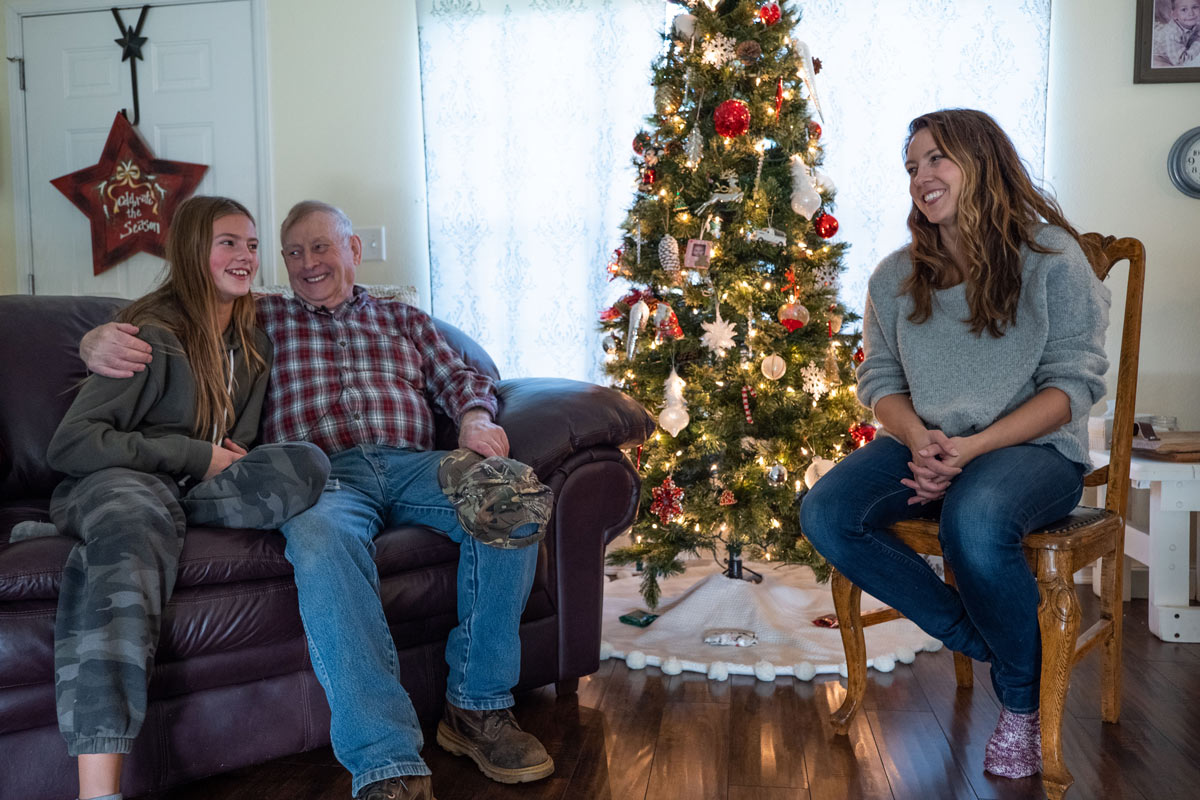
On the weekends we try to have everything wrapped up around 7 so that we have a couple of hours every night as a family. We’ll do a longer family game night, family movie nights, and if it’s really nice we’ll be outside. Just enjoying time together. We have a hot tub so we’ll spend a little bit of time in the hot tub.
Now, when it’s really hot out, July and August usually, we’ll flip things. So we’ll take the afternoon off and go on a picnic or something like that and then when it’s cooler in the evening we’ll do the preservation.
Saturday is definitely a workday for getting all the chores and projects and stuff we didn’t get to during the week. It’s also when we do the deep cleaning. So cleaning the bathrooms, dusting, decluttering, etc.
Then on Sunday normally we go to church. Sunday afternoons are when I do my batch prepping for the following week. That entails doing the majority of my bread baking for the week like sandwich bread, etc. I’ll also do something for breakfast, like chocolate sourdough bread, a sweet bread or muffins, or homemade pop tarts. Also do any lunch prep. My husband takes lunch with him to work. I don’t really prepare lunch from scratch during the workweek. Some things that I do is prepare a big salad, hard-boiled or deviled eggs. Essentially, I do big batch cooking on Sunday afternoon.
We try to not plan a lot for Sunday evening and we try to have an early dinner so that we can just relax a bit. Now, this may need to change because of special circumstances. For example, we recently got our pigs on a Monday afternoon which meant we needed to be sure to have the pigpen, electric fence, and everything ready for their arrival. So that Sunday before we made sure it was all ready and secure for them.
References
- The Family Garden Plan
- Pioneering Today Academy
- 10 Tips on Raising Meat Birds
- Classes and Descriptions
- Chocolate Sourdough Bread
- Homemade Pop Tarts
- Sandwich Bread
- Chocolate Zucchini Bread or Muffins
Other Posts You May Enjoy
- Avoid Overwhelm – Choosing What’s Right for Your Homestead
- 17 Self-Sufficiency Tips from the 1940’s & the Great Depression
- 13 Steps to the Simple Life Your Great-Grandparents Knew
- Pioneer Kitchen- 100-Year-Old Basic Kitchen Tools to Still Use Today
- 6 Things Our Great-Grandparents Did Better Than Us
- Homesteading for Beginners- 9 Transition Tips from City Life
- Our New 40-Acre Homestead Property
- Biggest Homestead Mistakes We Made & What to Avoid
- Community Sufficiency vs. Self-Sufficiency
- Month by Month Decluttering Schedule
